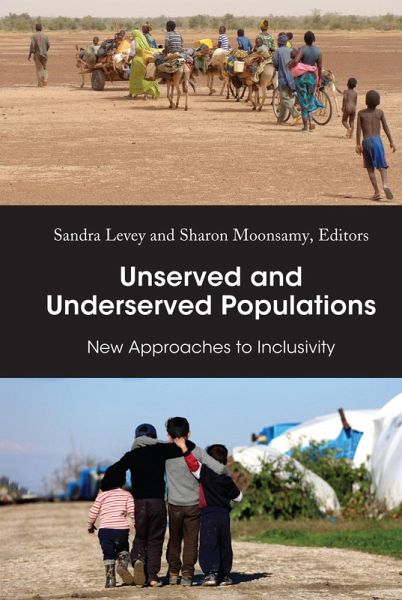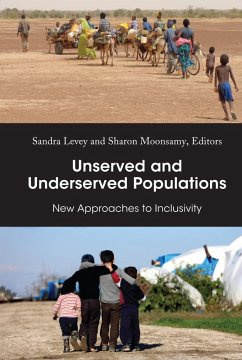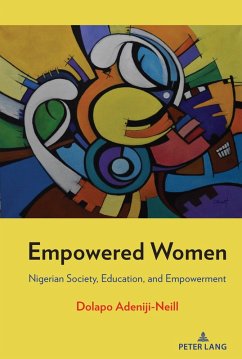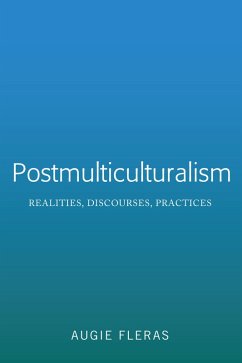
Unserved and Underserved Populations (eBook, ePUB)
New Approaches to Inclusivity
Versandkostenfrei!
Sofort per Download lieferbar
Statt: 94,30 €**
77,95 €
inkl. MwSt.
**Preis der gedruckten Ausgabe (Gebundenes Buch)
Alle Infos zum eBook verschenkenWeitere Ausgaben:

PAYBACK Punkte
39 °P sammeln!
This book describes problems faced by underserved and unserved populations. These are the growing number of migrants, refugees, and asylum seekers, as well as those among native born populations who lack equal access to basic health and education services, nutrition, clean water, and adequate living conditions. These inequalities result from the power deficit that derives from structural or systemic racism. Critical reflection or critical thinking allows us to better understand the systemic exercise of power by dominant groups that support a racial or ethnic hierarchy that has a negative impac...
This book describes problems faced by underserved and unserved populations. These are the growing number of migrants, refugees, and asylum seekers, as well as those among native born populations who lack equal access to basic health and education services, nutrition, clean water, and adequate living conditions. These inequalities result from the power deficit that derives from structural or systemic racism. Critical reflection or critical thinking allows us to better understand the systemic exercise of power by dominant groups that support a racial or ethnic hierarchy that has a negative impact on the living standards of the underserved and unserved. This hierarchy establishes a ranking of groups under the control of a dominant group, leading to inequalities in education, healthcare, income, and wealth. Critical reflection allows us to recognize how systems of privilege and oppression have influenced our thinking and actions. Studies conducted in the United States and South Africa show that marginalized groups reported receiving poor quality of health care, facing discrimination because of their race or ethnicity and communication/language barriers. The chapters in this book examine the inequalities faced by underserved and unserved populations in several countries across the globe, with strategies to address these problems.
This book would be of interest to the general population, along with courses in health care, sociology, political science, and courses and schools of public health.
This book would be of interest to the general population, along with courses in health care, sociology, political science, and courses and schools of public health.
Dieser Download kann aus rechtlichen Gründen nur mit Rechnungsadresse in A, D ausgeliefert werden.













